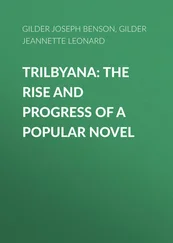Wilhelm Joseph von Wasielewski - The Violoncello and Its History
Здесь есть возможность читать онлайн «Wilhelm Joseph von Wasielewski - The Violoncello and Its History» — ознакомительный отрывок электронной книги совершенно бесплатно, а после прочтения отрывка купить полную версию. В некоторых случаях можно слушать аудио, скачать через торрент в формате fb2 и присутствует краткое содержание. Жанр: foreign_antique, foreign_home, music_dancing, на английском языке. Описание произведения, (предисловие) а так же отзывы посетителей доступны на портале библиотеки ЛибКат.
- Название:The Violoncello and Its History
- Автор:
- Жанр:
- Год:неизвестен
- ISBN:нет данных
- Рейтинг книги:3 / 5. Голосов: 1
-
Избранное:Добавить в избранное
- Отзывы:
-
Ваша оценка:
- 60
- 1
- 2
- 3
- 4
- 5
The Violoncello and Its History: краткое содержание, описание и аннотация
Предлагаем к чтению аннотацию, описание, краткое содержание или предисловие (зависит от того, что написал сам автор книги «The Violoncello and Its History»). Если вы не нашли необходимую информацию о книге — напишите в комментариях, мы постараемся отыскать её.
The Violoncello and Its History — читать онлайн ознакомительный отрывок
Ниже представлен текст книги, разбитый по страницам. Система сохранения места последней прочитанной страницы, позволяет с удобством читать онлайн бесплатно книгу «The Violoncello and Its History», без необходимости каждый раз заново искать на чём Вы остановились. Поставьте закладку, и сможете в любой момент перейти на страницу, на которой закончили чтение.
Интервал:
Закладка:
“In order to test me further the Signora Leonora (Baroni) induced me to leave my viola at her house, and begged me to return the following day. This I did, and as it was reported to me by a friend that it was said I played studied things very well, on the second occasion I gave them so many kinds of preludes and fantasias that they really granted me more appreciation than the first time. The respect, however, of these worthy people did not succeed in winning over the experts, who were somewhat over-refined and reticent to concede applause to a foreigner. It was told me they acknowledged that I played very well alone, and that they had never heard such harmonised viola playing, but they doubted if I were capable of extemporising a theme and playing variations on it. You know, sir, that in this I am not a little successful. The same words had been told me on the eve of St. Louis’ day in the French church, while I was listening to the fine music then being performed there. This determined me on the next day, excited thereto by the name of Saint Louis, as well as for the honour of the nation and the thirty-three cardinals who were present and taking part in the Mass, to ascend into the gallery. When I had been greeted with applause, I was given fifteen to twenty notes, in order to make myself heard after the third Kyrie with the accompaniment of a small organ. This subject I treated with such infinite variety that great satisfaction was shown, and the cardinals caused me to be invited to play again after the Agnus Dei.
“I considered myself very fortunate that I had been able to afford this little pleasure to so distinguished a company. I was given another somewhat more cheerful theme than the first, which I treated with so many variations and such a diversity of movements that they were extremely astonished, and immediately came to me in order to requite me with eulogiums. On account of the friendship which you cherish for me, my dear sir, I am convinced you will not accuse me of vanity in this digression. I have only made it in order that you may know that if a Frenchman desires to gain a reputation in Rome he must be well armed; and so much the more because it is thought here that we are not capable of improvising on a given theme. In fact, whoever plays an instrument deserves no extraordinary consideration, unless he shows himself equal to such a demand, especially for the viola—to play on which, by reason of its few strings and the consequent difficulty of playing in parts, is always a thankless task—it is necessary to possess some individual talent in order to be inspired by a subject and expand into beautiful inventions as well as agreeable variations. The capacity to do this requires two real and innate qualifications—viz., a lively and strong imagination and skilful execution, in order promptly to carry out one’s ideas.” 20 20 I give this and the following quotations from Maugars’ writings, according to my translations in the monthly parts of the “History of Music,” published in the year 1878.
The unlimited tribute of praise which Mersennus pays to the performances of Maugars, renders credible the remarkable account given by himself. Maugars’ gamba playing excited in Rome the greatest consideration, because at that time neither there nor anywhere else in Italy was there any prominent artist for that instrument. “As regards viola playing, Maugars declares there is no one in Italy who is distinguished for it, and in Rome it is very little cultivated. This has greatly astonished me, as formerly they had a certain Horace of Parma who performed wonderfully on this instrument, and left behind him some excellent compositions, which some of our musicians cleverly made use of for other instruments besides those for which they were composed. The father of the great Italian, Ferabosco, was the first to make them known to the English, who from that time have excelled all other nations.”
From the last words it is to be inferred that gamba playing in England was much in vogue at the time of Maugars. The Ferabosco (Ferrabosco)—with the christian name of Alfonso—mentioned by him, who first made the English acquainted with this art, can be no other than the composer of that name referred to by Fétis as born in Italy about 1515. He settled in London about 1540, and about the year 1587 appears to have been in the service, as “gentilumo,” of the Duke of Savoy. 21 21 The English writers on music affirm that the well-known composer, Ferabosco, who was born at Greenwich in the second half of the sixteenth century, and who was also called Alfonso, was the son of the above Ferabosco, with which the remarks of Maugars agree. Fétis doubts the truth of the assertion made by the English writers on music. The younger Ferabosco appears also to have been a gamba player, for he published, in the year 1609, in London, “Lessons for one, two, and three viols.” He died in 1665.
Amongst English gambists of distinction must be named Thomas Robinson, Tobias Hume, William Brade, and John Jenkins. Probably they were all pupils of the elder Ferabosco.
Concerning Thomas Robinson, who was born in the second half of the sixteenth century, and lived and worked in the beginning of the seventeenth in London, nothing further is known than that he published a curious work under the title, “The Schoole of Musicke: the perfect method of true fingering the Lute, Pandora, Orpharion, and Viol da gamba. London, 1603.”
His contemporary, Tobias Hume, was an officer in the English army, and spent much of his time in Sweden. He was reputed one of the cleverest gambists of that period; he caused to be published, in 1605, a work with the following title: “The first part of Ayres, French, Pollish, and others together, some in Tabliture and some in Pricke song. With Pauines, Galliards, and Almaines for the Viole di gamba, and other Musicall Conceites for two Basse-viols, expressing five partes, with pleasant Reportes one from the other; and also for two Leero-Viols, and also for the Leero-Viole with two Treble Viols, or two with one Treble. Lastly, for the Leero-Viole to play alone; and some Songes to bee sung to the Viole with the Lute, or better with the Viole alone. Also an Invention for two to play upon one Viole. Composed by Tobias Hume, gentleman. Printed by John Windet Loud, dwelling at the sign of the Cross Keyes, at Powles Wharfe, 1605.” It is evident that the composition of arrangements for two instruments, which might also be played on one only, was no invention of the Salzburg violinist, Joh. Hein. Biber. 22 22 See my work “The Violin and its Masters,” Part ii., p. 203.
In 1607 he published another work, under the title “Captain Hume’s Poeticall Musicke, principally made for two basse viols yet so contrived that it may be plaied eight severall waies upon sundry instruments with much facilitie. London.” This work, of which the British Museum possesses a copy, was dedicated to Anne of Denmark. He was received into the Charterhouse as a poor brother in 1629, and known as “Captain Hume.” His mind seems to have given way, and he died there on April 16, 1645.
William Brade flourished about 1615, and spent much of his life out of England. He was appointed violist to the Duke of Holstein-Gottorp and of the city of Hamburg at the beginning of the seventeenth century. In 1619 he seems to have been Capellmeister to the Margrave of Brandenburg and went subsequently to Berlin. He was esteemed a good performer on the gamba, and published in 1609, 1614, and 1621 a number of Paduans or Pavans, Gaillards, Canzonets, Volts, Courantes, in five and six parts (Berlin, 1621). A great confusion exists regarding the bibliography of his works, authorities differ as to their titles. They are of unusual interest, as containing many English airs, some of which are mentioned by Shakespeare. He is said to have died at Frankfort in 1647.
Читать дальшеИнтервал:
Закладка:
Похожие книги на «The Violoncello and Its History»
Представляем Вашему вниманию похожие книги на «The Violoncello and Its History» списком для выбора. Мы отобрали схожую по названию и смыслу литературу в надежде предоставить читателям больше вариантов отыскать новые, интересные, ещё непрочитанные произведения.
Обсуждение, отзывы о книге «The Violoncello and Its History» и просто собственные мнения читателей. Оставьте ваши комментарии, напишите, что Вы думаете о произведении, его смысле или главных героях. Укажите что конкретно понравилось, а что нет, и почему Вы так считаете.












![Edward Ellis - Adrift on the Pacific - A Boys [sic] Story of the Sea and its Perils](/books/753342/edward-ellis-adrift-on-the-pacific-a-boys-sic-s-thumb.webp)